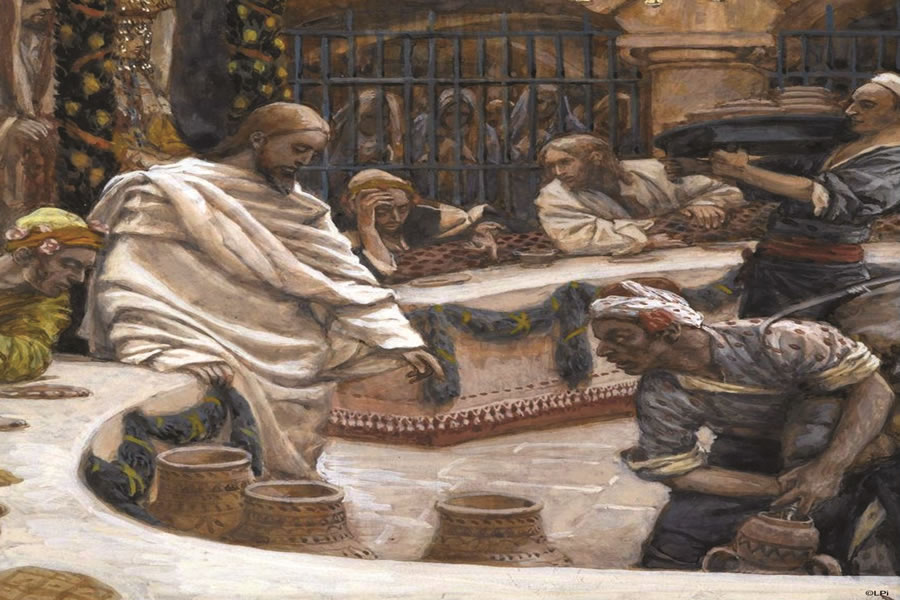Blog & Pastor Letters

Avoiding Immorality
01-16-2022Weekly ReflectionRev. Victor C. YakubuThe life of St. Augustine of Hippo is filled with testimonies of his immoral living before he found Christ. As a young man wandering all over North Africa and around the Mediterranean Coastlands, he sought to find true happiness. He tested all avenues of finding happiness as a young man but found no true joy. In whatever he indulged in, he progressed to the next to suit his personal voids. During his wanderings, he travelled to Milan in Italy and entered a church where he heard the word of God that touched him for the first time in his life. He listened to Bishop Ambrose of Milan preach about Jesus and this attracted him greatly. St. Augustine changed his life and was baptized. He not only become a Christian, but he was ordained later as a priest and Bishop of Hippo.
Personal change comes with personal efforts to fill a void within the self. Every person has personal traumas trying to test our alit to survive dangerous times. To resolve problems about our social, cultural, economic, or spiritual life, we need experienced minds to help us navigate to success. While trying to find answers to life’s problems, we run into catastrophic moments filled depressions. Without fulfilling the needs, we set for ourselves, depression takes over as a means of escape. St. Paul says to people in this condition, “The body is not for immorality, but for the Lord, and the Lord is for the body.” In his teaching, St. Paul emphasized the use of the body to glorify God and not allow it to be dominated by sin. Like St. Augustine, St. Paul became a reformed person after encountering Christ. Both changed their ways of living and began to live according to the light of Christ.
The call of Samuel is another typical example of change. He transformed into a new way by the mentorship of Eli. The Chief Priest Eli saw Samuel as an inexperienced youth in the ways of the Lord. He knew that his presence would inspire the young man. He advised Samuel accordingly so that he could live a life devoid of immorality. In the process of seeking the Lord, he got a surprise. The reading says, “At the time Samuel was not familiar with the Lord, because the Lord had not revealed anything to him as yet.” It shows that Samuel was a neophyte in things related to the temple and living a worthy life.
At the end, Eli knew that God had answered his prayers for Samuel. He advised him to reply, “Speak, Lord, for your servant is listening.” This is the kind of mentoring we need in the spiritual realm just like in all endeavors of human life. Unfortunately, many people disregard mentoring in the spiritual realm because people generally do not want an intrusion into their personal lives where sin reigns.
Samuel gained the blessing of Eli and the Lord blessed him for his future endeavors. Every Christian should emulate Eli because holiness can come to us only when we understand the value of our true selves. The purpose of our existence is the indulgence of self into gainful projects that benefit the self and others.
Jesus’ coming into the world is purposely to assist every individual to make the decision to know God at a personal level and not the at the family or community levels. At the personal level, we learn to be true to ourselves, and we invest our time in the service of God knowing that others are equal with us before God. In this regard, Jesus taught his disciples to love one another as he loved them. St. John the beloved apostle continued to preach this love even into his old age when he lived on the Patmos Island. John the Baptist recognized Jesus as the true Lamb of God and introduced him as “the Lamb of God.” Two of John’s disciples left him and followed Jesus because they found the man whose teaching brings transformation at the personal level. We now know that Andrew and his brother Simon Peter were disciples of John the Baptist. But they transferred their allegiance to Jesus because they found the man who will lead them to their inner selves. Both Andrew and Simon Peter became great apostles of Jesus in expanding the teachings of Jesus after his death. Andrew invited Simon Peter when he said, “We have found the Messiah” and brought him to Jesus. We know that Jesus loved Simon and renamed him Cephas — which means Peter or the Rock. And Peter, the Rock, rose to become the head of the apostles (and in the Catholic Church, the first Pope).
The message to all Christians on this day is about believing in yourself during personal confusion. As youngsters, we dream about stardom and fame, and we rush into mistakes of all kinds. As older people, we regret our actions in the past and wished we could have done better. However, the difference between youngsters and older people is the under- utilization of resources around for personal growth. Anybody who begins a sentence with “I know what am doing” does not regard a second opinion. But listening to experienced people gives a second opinion resorts our hope of a better tomorrow. Overall, every Christian has a former life, and it is not good to open the Pandora’s Box. The life we lived in sin is filled with mistakes like of Samuel, Augustine, or Paul. It is time to embrace a personal change that brings transformation into the future. This can only be real when we allow Jesus to steer the boat and whether all the storms of our lives either known or unknown to us. To enjoy your tomorrow, you must begin to sow seeds of true happiness today. Are you living an immoral life? Tell your story. Keep praying!
BACK TO LIST